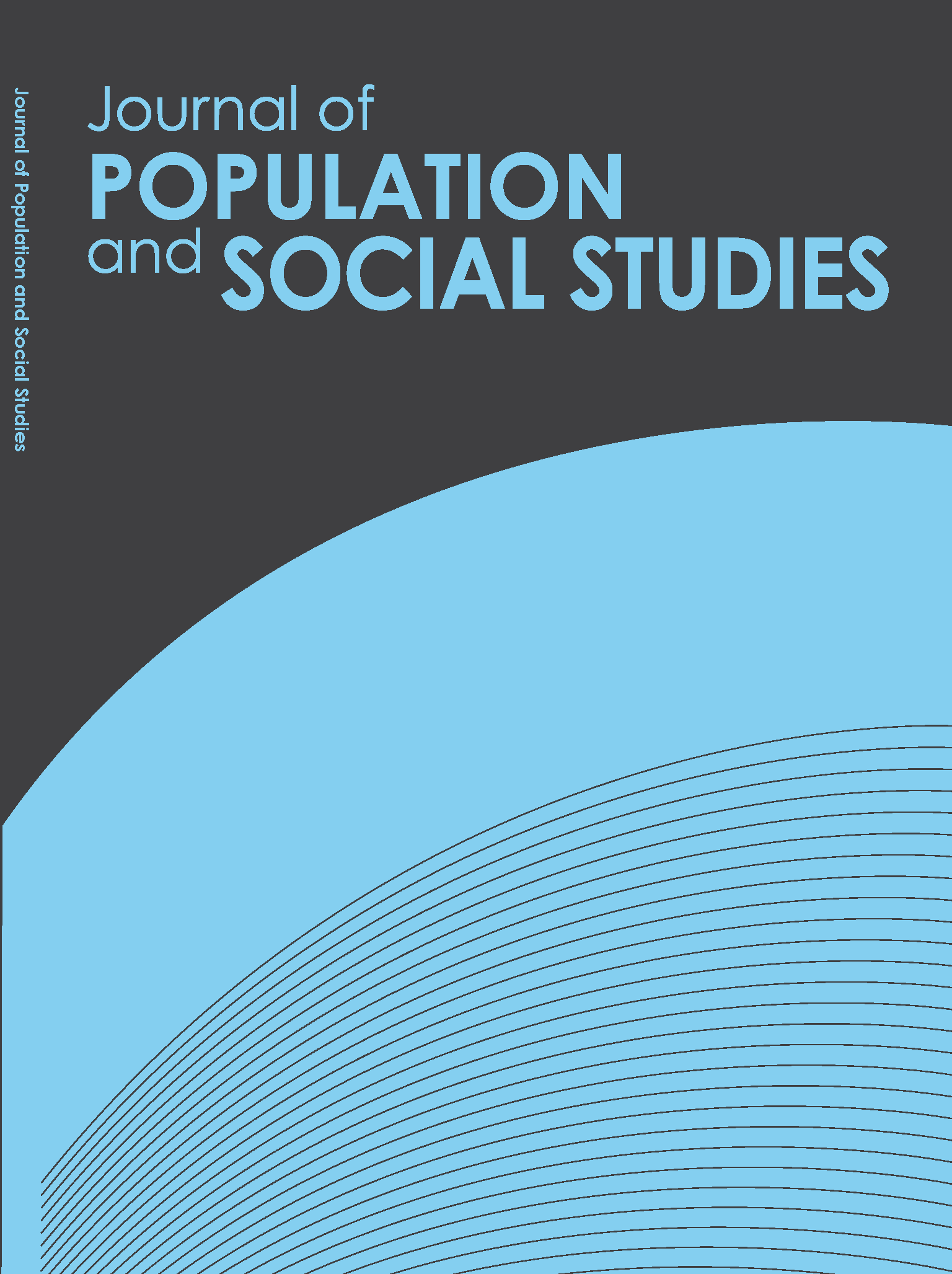Effects of Urban Expansion and Cultural Hierarchies On Labor Strategies within Thailand’s Rural-Urban Interface
Main Article Content
Abstract
This paper explores agrarian families’ use of labor diversification under conditions of environmental, political, and socioeconomic changes introduced through Thai urbanization policies. Building from literatures in development, livelihood, and migration studies, this research analyzes how state-planned urban expansion in Thailand (Nakhon Ratchasima province) alters land allocations, natural resource availabilities, and household labor organization among agriculturalists. Though stratified by class and land holdings, agrarian households’ livelihoods demonstrated both degrees of dependence on natural resource availabilities and increased exposures to the Thai state’s urban expansion policies and changing broader political economies. However, while state development may be viewed as coercive structural forces underpinning contemporary labor flexibilities due to the alteration of land tenure, resource availabilities, and economic systems, complex individual and household agendas shaped people’s participation in and understanding of labor diversification. Ethnographic data demonstrated too the ways in which migration decisions and household provisioning strategies reflected people’s understandings of Thai socio-political and cultural systems. By exploring people’s engagement with culturally constructed social hierarchies, notions of modernity, and ideas of state development, this research demonstrates how cultural aspirations shape labor mobilities and remittance behaviors within agrarian transitions.
Article Details
References
Allen, A. (2003). Environmental planning and management of the peri-urban interface: Perspectives on an emerging field. Environment and Urbanization, 15(1), 135-147. doi: http://dx.doi.org/10.1177/095624780301500103
Amekawa, Y. (2010). Rethinking sustainable agriculture in Thailand: A governance perspective. Journal of Sustainable Agriculture, 34, 389-416. doi: http://dx.doi.org/10.1080/10440041003680254
Baker, C., & Phongpaichit, P. (2007). A history of Thailand. Cambridge: Cambridge University Press.
Barney, K. (2012). Land, livelihoods, and remittances: A political ecology of youth out-migration across the Lao-Thai Mekong border. Critical Asian Studies, 44(1), 57-83. doi: http://dx.doi.org/10.1080/14672715.2012.644887
Barrett, C., Reardon, T. & Webb P. (2001). Nonfarm income diversification and household livelihood strategies in rural Africa: Concepts, dynamics, and policy implications. Food Policy, 26, 315-331. doi: http://dx.doi.org/10.1016/s0306-9192(01)00014-8
Boccuzzi, E. (2013). Bangkok bound. Chiang Mai: Silkworm Books.
Boonyabancha, S. (2005). Bann Mankong: Going to scale with ‘slum’ and squatter upgrading in Thailand. Environment and Urbanization, 17(1), 21–46. doi: http://dx.doi.org/10.1177/095624780501700104
Borras, S. (2009). Agrarian change and peasant studies: Changes, continuities and challenges – an introduction. The Journal of Peasant Studies, 36(1), 5-31. doi: http://dx.doi.org/10.1080/03066150902820297
Bryceson, S. (2002). The scramble in Africa: Reorienting rural livelihoods. World Development, 30(5), 725-739. doi: http://dx.doi.org/10.1016/s0305-750x(02)00006-2
Capistrano, D. (2008). Decentralization and forest governance in Asia and the Pacific: Trends, lessons and continuing challenges. In C. Colfer, G.R. Dahal, & D. Capistrano (Eds.), Lessons from forest decentralization: Money, justice and the quest for good governance in
Asia-Pacific (pp. 209-230). London: Earthscan.
Castles, S. (2009). Development and migration—migration and development: What comes first? Global perspective and African experiences. Theoria, 56(121), 1-32. doi: http://dx.doi.org/10.3167/th.2009.5512102
Castles, S., de Haas, H. & Miller, M. (2013). The age of migration: International population movements in the modern world. New York: Guilford Press.
Chambers, R. & Conway, G. (1991, December). Sustainable rural livelihoods: Practical concepts for the 21st century. IDS Discussion Paper 296, Brighton: IDS. Retrieved from https://www.ids.ac.uk/files/Dp296.pdf


